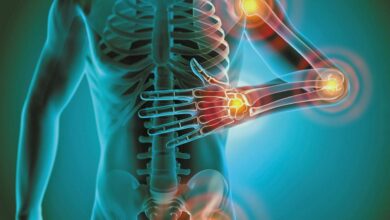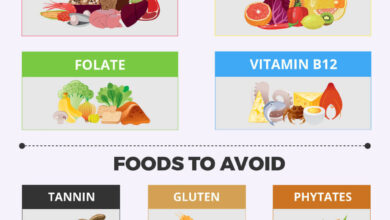
The Big Link Between Burnout and Weight Gain
The big link between burnout and weight gain might seem surprising, but it’s a very real connection. Burnout, that state of emotional, physical, and mental exhaustion, can wreak havoc on our bodies in ways we might not expect, including contributing to unwanted weight gain.
It’s not just about stress eating, though that plays a role. Burnout can actually change the way our bodies process food and store energy, making it harder to maintain a healthy weight.
This article explores the science behind this connection, looking at how burnout affects our hormones, behavior, and metabolism. We’ll uncover how chronic stress can lead to insulin resistance, disrupt sleep, and even alter our hunger cues. We’ll also discuss how burnout can lead to unhealthy eating habits, reduced physical activity, and a decline in self-care, all of which contribute to weight gain.
The Stress-Hormone Connection: The Big Link Between Burnout And Weight Gain
Burnout is a state of emotional, physical, and mental exhaustion caused by prolonged or excessive stress. This chronic stress can trigger a cascade of hormonal changes, particularly affecting the release of cortisol, often referred to as the “stress hormone.” Cortisol plays a crucial role in our body’s response to stress, but when it’s chronically elevated, it can have detrimental effects on our health, including weight gain.
Cortisol’s Role in Weight Gain, The big link between burnout and weight gain
Elevated cortisol levels can lead to weight gain in several ways. Firstly, cortisol promotes fat storage, particularly in the abdominal area. This is because cortisol increases the activity of an enzyme called lipoprotein lipase (LPL), which facilitates the uptake of fat from the bloodstream into fat cells.
Secondly, cortisol can also increase appetite and cravings for high-calorie foods. This is due to its influence on the brain’s reward centers, making it more difficult to resist unhealthy food choices.
Chronic Stress and Insulin Resistance
Chronic stress, a hallmark of burnout, can lead to insulin resistance, a condition where the body’s cells become less responsive to insulin. Insulin is a hormone that regulates blood sugar levels. When insulin resistance develops, the body produces more insulin to compensate, but it becomes less effective at transporting glucose into cells for energy.
This can lead to increased blood sugar levels, which can further contribute to weight gain.
Sleep Disruption and Weight Gain
Burnout can significantly disrupt sleep patterns, leading to sleep deprivation. Insufficient sleep can further elevate cortisol levels, creating a vicious cycle. Lack of sleep can also increase appetite and cravings, particularly for sugary and fatty foods. This is because sleep deprivation disrupts the balance of hormones that regulate appetite, including leptin and ghrelin.
Burnout can wreak havoc on our bodies, often leading to poor food choices and weight gain. When we’re stressed and exhausted, we crave comfort foods that are high in calories and low in nutrients. But there’s a way to combat this: by focusing on high-fiber meals that keep us feeling full and satisfied.
Check out this fantastic guide to High Fiber Meals for Weight Loss: A Guide to Feeling Full and Slim to learn how to make healthier choices even when you’re feeling burnt out. Prioritizing fiber can help you manage your weight and regain control of your health, even amidst the challenges of burnout.
Leptin is a hormone that signals fullness, while ghrelin is a hormone that stimulates hunger. When sleep is insufficient, ghrelin levels rise, and leptin levels decrease, making it more difficult to control food intake.
Behavioral Changes

Burnout can significantly impact our behaviors, leading to changes that contribute to weight gain. These changes often stem from the emotional and physical exhaustion associated with burnout, making it challenging to maintain healthy habits.
Emotional Eating and Cravings for Comfort Foods
Burnout can trigger emotional eating, a coping mechanism where individuals turn to food for comfort and stress relief. The emotional distress associated with burnout can lead to cravings for high-calorie, processed foods that provide a temporary sense of satisfaction.
These foods often contain high levels of sugar, fat, and salt, contributing to weight gain.
“When we are burned out, we are more likely to turn to food for comfort and stress relief, leading to unhealthy eating habits.”Dr. Elizabeth Lombardo, psychologist and author
Reduced Motivation for Physical Activity
Burnout can significantly reduce motivation for physical activity. The fatigue and exhaustion associated with burnout make it challenging to find the energy and enthusiasm for exercise. This can lead to a sedentary lifestyle, further contributing to weight gain.
“Burnout can make it difficult to find the energy and motivation to engage in physical activity, leading to a sedentary lifestyle.”
American Psychological Association
Impact on Self-Care Practices
Burnout can also impact self-care practices, leading to neglect of healthy habits. When we are burned out, we often prioritize work or other responsibilities over our own well-being. This can lead to poor sleep, skipping meals, and neglecting exercise, all of which can contribute to weight gain.
You know that feeling of being so burnt out you just want to crawl into bed and eat everything in sight? That’s a real thing! When you’re chronically stressed, your body produces hormones that can lead to weight gain. Understanding how your hormones work can be key to getting back on track.
Check out this article on 3 Hormones to Keep in Mind for Weight Loss to learn more about how to manage those pesky hormones and get back to a healthier you. Once you’ve got a handle on your hormones, you can start tackling the burnout and the weight gain that often come with it.
“Burnout can lead to a neglect of self-care practices, such as healthy eating and exercise, which can contribute to weight gain.”
Mayo Clinic
The Impact on Metabolism
Burnout can have a significant impact on your metabolism, the complex process by which your body converts food into energy. This impact can contribute to weight gain, as your body may not be able to burn calories as efficiently.
Metabolic Rate and Weight Gain
Burnout can lead to a decrease in your metabolic rate, the rate at which your body burns calories. This is because stress hormones, such as cortisol, can interfere with the normal functioning of your thyroid gland, which plays a crucial role in regulating metabolism.
When your metabolic rate slows down, your body burns fewer calories, even when you’re at rest. This can lead to weight gain, even if you haven’t changed your diet or exercise habits.
Disrupted Hunger and Satiety Signals
Burnout can also disrupt your body’s natural hunger and satiety signals. When you’re stressed, your body releases more of the hormone ghrelin, which stimulates appetite. At the same time, your body produces less of the hormone leptin, which signals to your brain that you’re full.
This imbalance can lead to overeating, even when you’re not actually hungry.
Decrease in Muscle Mass
Burnout can also lead to a decrease in muscle mass. This is because stress can cause your body to break down muscle tissue for energy. Muscle mass plays a crucial role in metabolism, as it burns more calories than fat tissue, even at rest.
Burnout can wreak havoc on your body, including your weight. When you’re constantly stressed and exhausted, you’re more likely to reach for comfort foods and skip exercise. But the good news is that you can break the cycle. Check out these 10 Simple Changes That Lead to Weight Loss for some easy ways to get back on track.
By making small, sustainable changes, you can reclaim your health and well-being, and say goodbye to the weight gain associated with burnout.
A decrease in muscle mass can further contribute to weight gain.
The Cycle of Burnout and Weight Gain
Burnout and weight gain often go hand-in-hand, creating a vicious cycle that can be difficult to break. This cycle is fueled by a complex interplay of physical, emotional, and behavioral factors, making it essential to understand how these elements contribute to the ongoing struggle.
Understanding the Cycle
The relationship between burnout and weight gain can be illustrated as a vicious cycle:
- Burnout leads to decreased motivation and energy, making it difficult to engage in physical activity or make healthy food choices.
- Poor diet and lack of exercise contribute to weight gain, further exacerbating burnout symptoms like fatigue and low mood.
- Increased weight and associated health issues can intensify feelings of stress and overwhelm, leading to further burnout.
This cycle can be challenging to break, as each element reinforces the others.
Comparing Symptoms
The physical and psychological symptoms of burnout and weight gain often overlap, making it difficult to distinguish between the two:
| Symptom | Burnout | Weight Gain |
|---|---|---|
| Fatigue | Extreme exhaustion, difficulty concentrating | Reduced energy levels, difficulty performing daily tasks |
| Mood Changes | Irritability, anxiety, depression | Low mood, feelings of inadequacy |
| Sleep Disturbances | Insomnia, difficulty falling or staying asleep | Difficulty sleeping due to discomfort or anxiety |
| Appetite Changes | Loss of appetite, overeating | Increased cravings for unhealthy foods, overeating |
Addressing Burnout for Weight Management
Addressing burnout is crucial for breaking the cycle and achieving sustainable weight management. By prioritizing self-care and addressing the root causes of burnout, individuals can regain control over their health and well-being.
- Stress Management Techniques:Practicing mindfulness, yoga, or meditation can help reduce stress levels and promote relaxation.
- Setting Realistic Goals:Breaking down large tasks into smaller, manageable steps can alleviate feelings of overwhelm and improve motivation.
- Prioritizing Sleep:Aim for 7-9 hours of quality sleep each night to restore energy levels and improve mood.
- Seeking Professional Support:Talking to a therapist or counselor can provide guidance and coping mechanisms for managing stress and burnout.
End of Discussion

Understanding the link between burnout and weight gain is crucial for taking control of our health. By recognizing the signs of burnout and taking steps to address it, we can break the cycle and create a healthier relationship with our bodies.
This means prioritizing self-care, managing stress, and adopting a healthy lifestyle that supports both our physical and mental well-being. It’s a journey that requires awareness, effort, and a commitment to prioritize ourselves. Let’s break free from the burnout cycle and create a future where we feel energized, balanced, and in control of our health.






